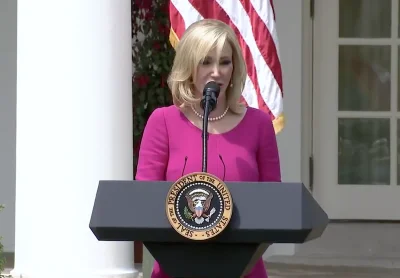
Could a Televangelist be Shaping America’s Political Landscape?
As America navigates a contentious political climate, one figure has emerged at the intersection of faith and politics—Paula White. Long associated with President Donald Trump, White's role as a spiritual advisor has ignited discussions about the influence of televangelists in Washington D.C.
The journey of Paula White from the pulpit to the White House encapsulates a unique blend of religious fervor and political strategy. Her relationship with Trump, described as a blend of prayer and high-stakes fundraising, has positioned her as a significant player within the Trump administration. "We pray for God to use him," White has often stated, illustrating the deep-rooted connection between her faith and political aspirations.
In light of her considerable influence, questions arise about the broader implications of her presence in the White House Faith Office. Distinguished publications, including Christianity Today, have explored the extent of her advisory role, suggesting that she may serve as a bridge between evangelical Christians and the political realm. This relationship highlights the power dynamics where spiritual guidance intertwines with governance.
Critics argue that White's visibility reflects a concerning trend wherein religious leaders become political operatives. They caution against the potential for faith to be exploited for political gain, urging that the sanctity of religious belief should remain distinct from the machinations of politics. On the other hand, supporters view her as a voice for American Christians, successfully advocating for their values at the highest levels of government.
The debate surrounding Paula White is not merely about her actions but speaks to a larger narrative regarding the role of faith in the public square. As more religious leaders step into the political arena, one cannot help but wonder: what does this mean for the future of American democracy? With growing polarization, the blending of sacred and secular raises the stakes for both political action and community guidance.
Looking ahead, Mary Ellen Lane, a political analyst, suggests that the influence of religious figures like White on policy and societal values will only deepen. "If Trump wins the next election, we may see an even greater shift in how faith-based initiatives intersect with national policies."
As we delve into the implications of Paula White's involvement in the White House, it leaves us with a pressing question about the direction of America's political future. Are we witnessing the rise of a new religious political class? As readers, what are your thoughts on the intersection of faith and politics represented by figures such as Paula White? Feel free to share your opinions in the comments below!
Latest
Is Southern California’s Job Market at a Crossroads?
16 hours agoCould a Trip to the Grocery Store Change Your Life?
17 hours agoCan you Like
Amid rising global tensions and economic uncertainties, British Prime Minister Sir Keir Starmer recently engaged in a pivotal discussion with US President Donald Trump, highlighting the complexities o...
In a remarkable escalation of his campaign against perceived political adversaries, President Donald Trump is now turning his sights on tax-exempt organizations that play pivotal roles within civil so...
As tensions rise between the United States and China, the stakes have never been higher. A precarious economic landscape paints a picture of two giants entangled in a trade war that carries the potent...